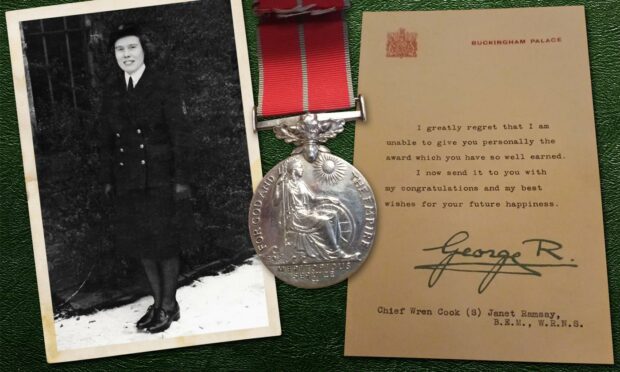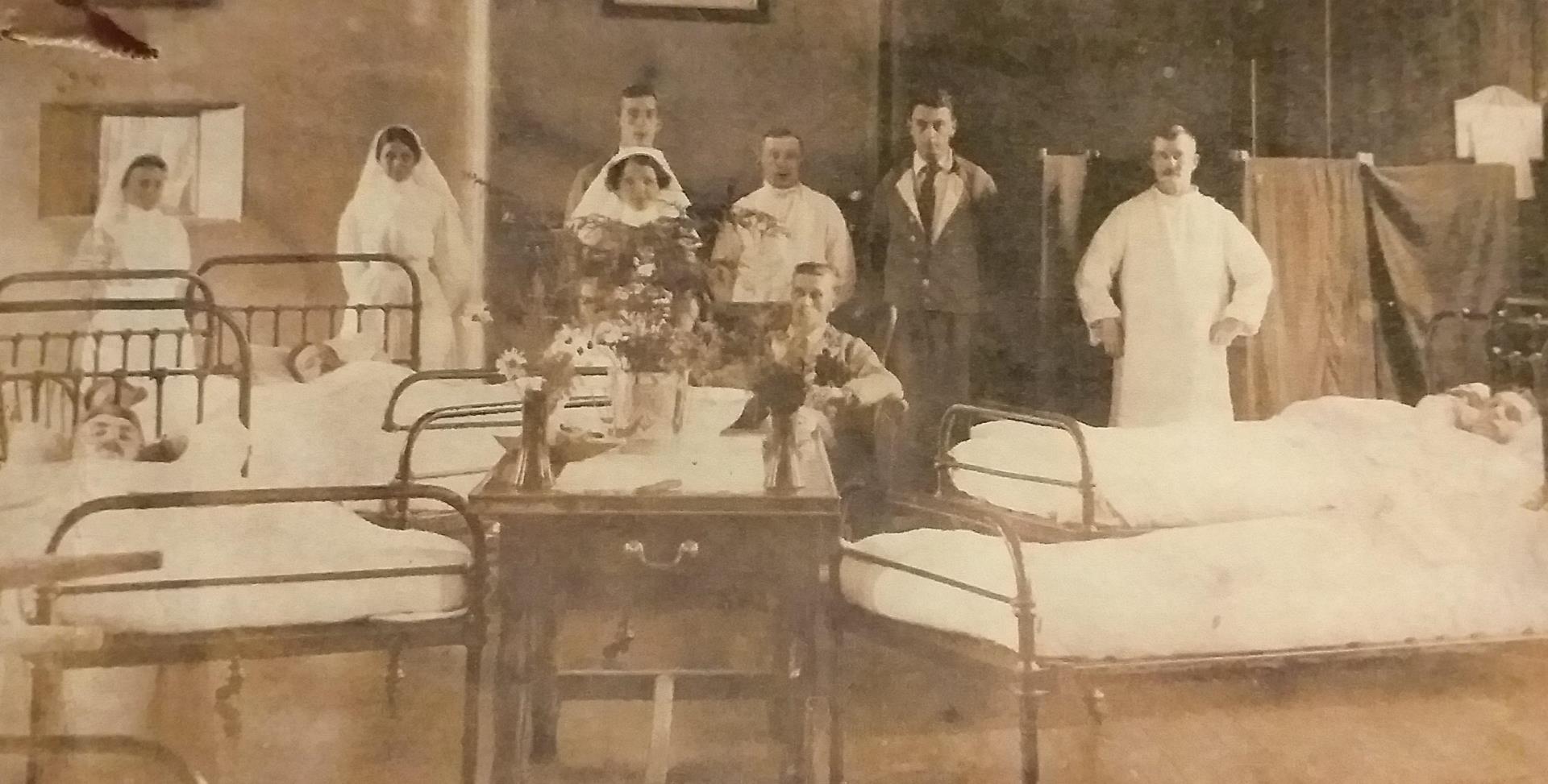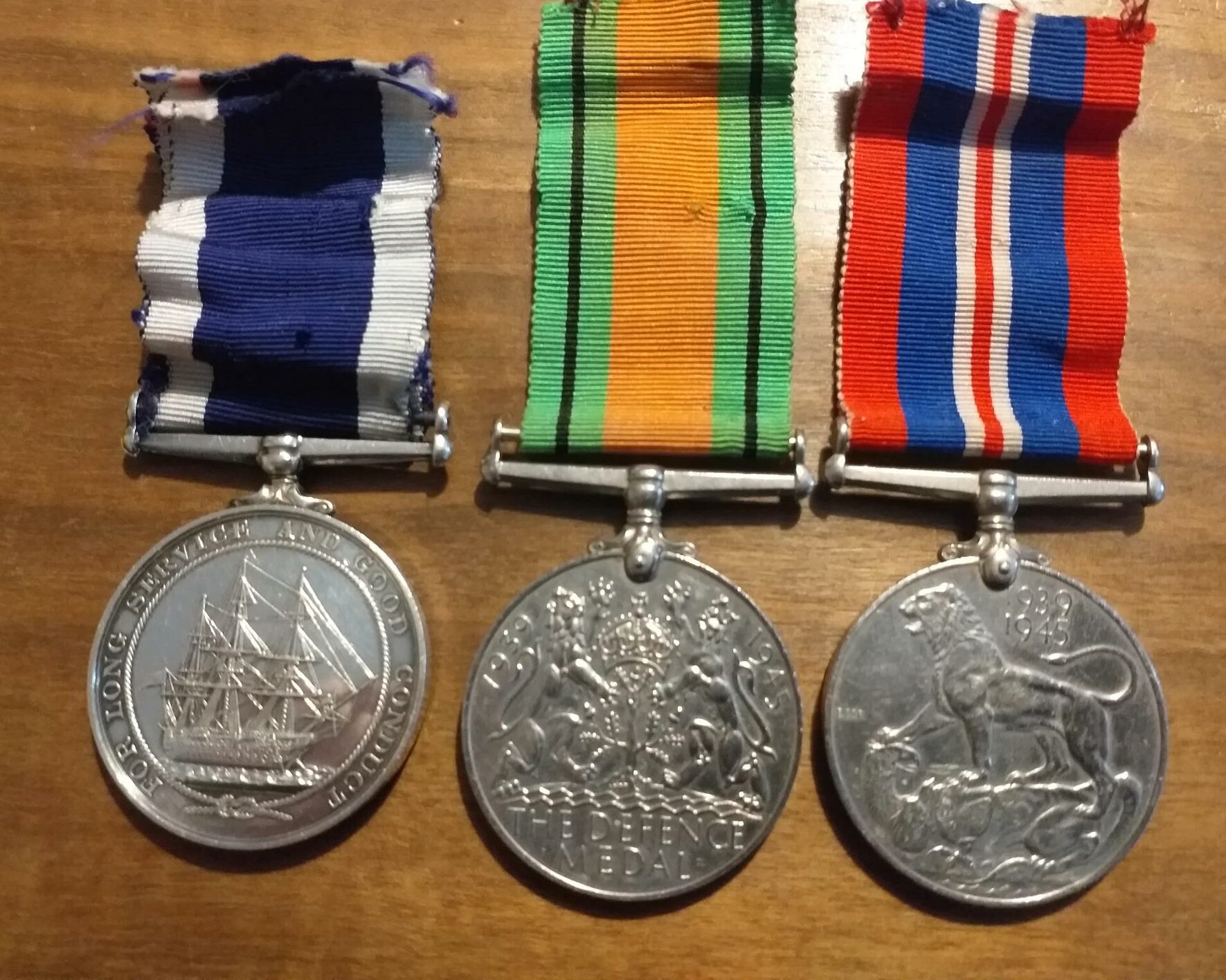Janet Ramsay of Kennoway, who served as a Wren during the Second World War, has died aged 101.
She was a cook throughout the conflict, and had to be creative to make Australian rabbits, dried mince and pilchards appetising.
Janet stayed in the Women’s Royal Naval Service after the war, rose to become a chief Wren and was awarded the British Empire Medal by King George VI.
Basic training
Her wartime catering training was basic. She had to stir semolina and peel potatoes at Pitreavie in Fife to qualify as a specialist cook.
She was then posted to HMS Cressy in Dundee, which was the old Mathers Hotel, now the Malmaison.
When she joined up in January, 1942, Janet followed in the footsteps of her father, Robert Ramsay, who was wounded in the First World War.
War wounds
He was serving with The Black Watch at the Battle of Loos when his platoon was ordered to hide behind a haystack.
Robert refused and instead lay flat on the ground. The haystack was blown up and all the men were killed.
Her father received two shell wounds in his back. A piece of shrapnel wedged itself in a tin of corned beef hanging from a canteen collar from his neck.
He was certain the corned beef saved his life. Robert went on to live until he was 95 and died in 1989.
Janet Ramsay was born in Kingsbarns where Robert was a ploughman and her mother Margaret looked after the home.
She was educated in St Andrews and after she left school she trained as a cook in the home of Captain and Mrs Rusack.
Volunteer
After a short spell working with her family on the farm, Janet volunteered for the WRNS and was accepted the following year aged 21.
When her posting in Dundee was completed, Janet was sent to the signals station, HMS Cabbala, in north-west England, feeding 600 sailors and 500 Wrens.
The next posting was to Tortworth estate near Gloucester. The sailors occupied the mansion house while the Wrens spent the winter in a tent in the grounds.
Later Janet served at Rosneath, Helensburgh, where sailors practised landing craft manoeuvres in preparation for D-Day.
Delicacies
She recalled some of the dishes she made for a booklet, Levenmouth at War. Staples included dried mince, tinned stew, Australian rabbits in barrels, corned beef, pilchards and tinned sausages.
Fish cakes and rissoles were made from scratch and liberal use was made of dried eggs, tinned milk and ship biscuits.
By the time she was posted to an American camp in South Wales, luxuries such as legs of pork and tins of fruit were available.
Janet served 27 years in the WRNS, was awarded the BEM in 1951, and later returned to Fife.
She continued to cook and was still making and decorating wedding cakes aged 90.
Handiwork
Janet was a women’s rural institute member and enjoy knitting and craftwork as well as baking.
She neither married nor drove, was a member of Kennoway Church and lived independently until she moved into a care home aged 98.


